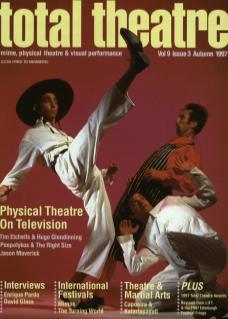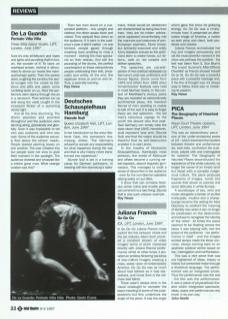In her introduction to the show Stefanie Carp, the company's dramaturg, writes: ‘The Germans refused to accept any responsibility for what happened during the war, and that is why history never transformed into experience.’
Stunde Null is set in a training camp for German politicians. In keeping with the dramaturg's statement, these would-be statesmen are characterised as being less than men, they are tic-ridden adolescents squeezed uncomfortably into the manners and costumes of pan-European sophistry. Much broad, but brilliantly-executed and wildly funny slapstick ensues as the politicians learn to shake hands, cut ribbons, walk on red carpets and deliver speeches.
The speeches are cut-and-pastes of real political addresses by Germany's post-war politicians and literary figures. Some come from 1945 and others from 1995 when remembrance festivals were held in most German towns. In the context of Marthaler's vicious satire they are revealed as extraordinarily sentimental pleas, the mawkish flannel of men unwilling or unable to talk of the war. It is easy to forget these are real speeches – the old men's ridiculous urgings to ‘the youth'; the absurd idea that post-Nazi Germany can simply wipe the slate clean; that 1945, henceforth, shall represent ‘year zero' (Stunde Null); and that the nation should be thankful that its self-destruction enabled it to start anew.
In the mouths of Deutsches Shauspielhaus Hamburg's inept politicos, the words of Adenauer and others become a cunning verbal slapstick, absurd linguistic gymnastics. This manages to instil a sense of discomfort in the audience – even for the non-German speakers relying solely on surtitles.
A show that can combine hilarious comic mime and erudite political comment is a rare thing. Stunde Null is one such virtuoso example.

